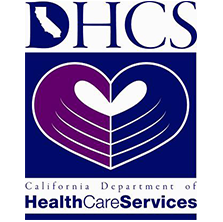Denial is a powerful drug.
It’s addictive.
It’s tough to quit.
Think about it for a moment though and you’ll come to the realization that denial truly does have a stronghold on an addict.
But why?
Well, there are likely a number of reasons but a couple of core ones are ego and pride. No one wants to admit they’re wrong about something or that they’re unable to handle a situation on their own. It is this type of thinking that applies to more than addiction and functions as a roadblock for people, perhaps even the majority of people, no matter the situation.
We’re just not fundamentally good at getting out of our own way or seeing ourselves and our circumstances with clarity.
That’s a dangerous thing when it comes to substance use disorders and begs the question, how to approach an addict in denial?
Signs Someone Is Struggling with Alcohol or Drug Addiction
No matter whether it’s drugs or alcohol, addiction shows up with the same warning signs. Of course, drugs and alcohol have their own effects but the underlying addiction looks the same.
If someone you love is struggling with addiction, this is what it will look like:
- Using larger amounts of the drug or drinking more than planned
- Can’t cut back on drugs or alcohol despite best efforts to do so
- Strong cravings
- Spending a considerable amount of time getting, using and recovering from drinking or drug use
- Unable to maintain responsibilities at work, home and/or school
- Foregoing social, occupational and recreational events in order to use
- Maintaining drug use or drinking despite interpersonal problems it causes
- Using despite the clear negative mental and physical effects
- Putting yourself in increasingly dangerous situations when under the influence
- Developing a tolerance that requires ever-larger doses or increasing the number of drinks to get the same effect as before
- Experiencing withdrawal symptoms that require more drugs or alcohol to alleviate
Naturally, in the early stages of addiction, you won’t see all of these signs, and even the ones that are there may not be clear. However, once you start to pick up on something it’s important to make note of it and not ignore or excuse it. Catching addiction earlier is better than the alternative.
How To Approach an Addict in Denial
Now that you’ve confirmed an addiction, what can you actually do for that person? How can you approach them in a way that gets them to see the light so to speak?
There’s no single way to do this but no matter how you go about it, keep these principles in mind:
Avoid confrontation and anger
Confrontation closes minds. Whether it’s drugs/alcohol or a work argument, getting confrontational rarely solves a problem. For an addict, it may even make things worse because they’ll feel unsupported, stigmatized and attacked which could escalate their use.
Be relatable
Talk about how drug/alcohol use affects the things they care about deeply. How it not only hurts them but also their family and friends. How it risks their livelihood and so on.
Be specific
Saying addiction is bad and they should get help goes in one ear and out the other. Describe specific instances where drugs or alcohol have wreaked havoc.
Be supportive and kind
Show that you care and genuinely be there for them. Have nurturing conversations as much as possible. That doesn’t mean enabling their addiction, it just means coming from a place of kindness when engaging.
Lastly, if possible, have these conversations when they’re not under the influence of any substance.
Getting through to someone that’s in denial is tough, if you need more advice on how to break through to them, reach out to us at Safe Harbor.




